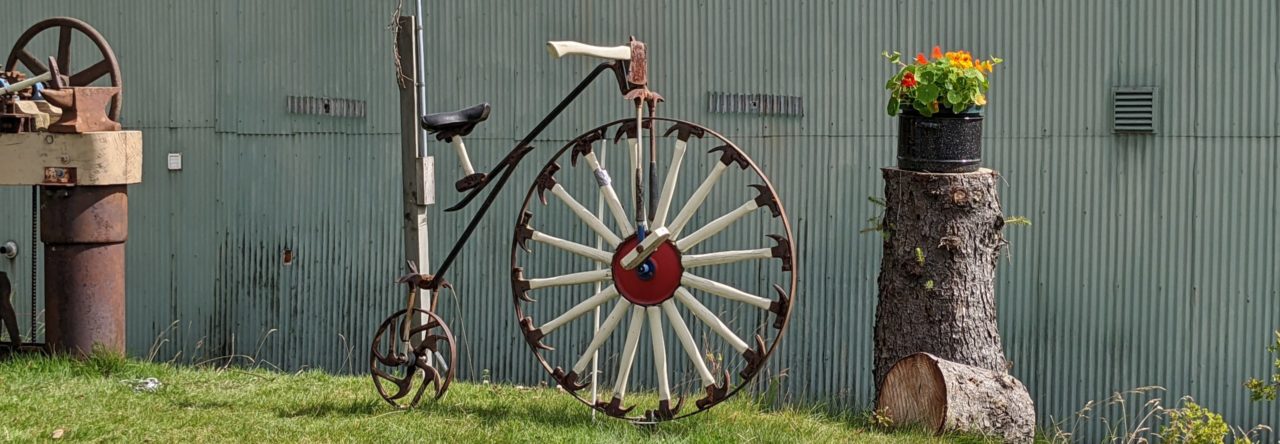It. Has. Been. A. Year.
One year since I left the government contract I was supporting and took a job with an events company as a Web Conferencing Platforms Administrator. That basically means I make Webex and Zoom play nicely with our software platform.
Let’s set the stage.

March 2020.
Unsuspecting Carl leaves his last job supporting Webex/VTC/video streaming to accept a new position at an events company. The job is to oversee Webex and Zoom. Both keeping up on the changes across both platforms and how to improve the company's offerings using them with its own events management platform.
Within a month, the global pandemic has hit. I’ve been sent home to work remotely and I struggle to learn my job, learn the people I’m working with, learn what exactly the scope of my new role is and field questions coming at me from all angles about how and what and how many and do you think…
…all the while praying to the tech gods that Zoom and Webex stay up and running…
This past year has been a massive learning experience. Taking this job was the second hardest time I’ve had start a new job. But that’s a story for another time.

I’ve been the entire world change from under me. I’ve seen the business reinvent itself and respond to requests and demands from all sides. I’ve seen the team I got hired into completely change. (I’m the only one left on the team from one year ago.) I’ve learned how to build a product. How to plan and write developer tickets and think about scope of work. I’ve learned scrum and agile processes. I’ve learned so many new terms and systems and ways of working I can’t even try to remember them all now.
It’s been a year. I’ve still never met in person many of the folks I work with everyday. I’ve largely worked remotely, living in instant messaging, Zoom meetings, and Webex meetings. I’ve stared at myself for countless hours trying to document specific functions or answer questions from our team.
I’ve learned how to not only read but interact with APIs. I can speak to Zoom and Webex fairly fluently. I’ve been reminded how I could never be a programmer, but can read bits of code and generally understand the parts of it.
The value of having a supportive, positive, encouraging team who unfailingly has your back as I have theirs cannot be overstated. It has been an absolutely exhausting year. But a challenging one full of failure, success and growth in all the right ways.
I could not be more proud of the work we’ve done and successes we’ve shared this past year. My timing could not have been worse but my decision could not have been better. The team that’s been built around me is unparalleled.
I work in a a positive, supportive environment. I joked this past week that we were working holding a Mutual Admiration Society because we’ve all been thankful for the work our teammates have done these past few months. But this week particularly, as things were coming to a head and crushing us all in different ways. The ability to ask for help and not only receive that help but no where is no risk taken in making that ask.
We’re here to learn together, fail together and succeed together. This has been the most stressful year of my life. I look back and it’s an absolute blur. Even now, it’s been nearly two months since it was a year. I wrote a short post on Linkedin around the actual anniversary to express my thanks to the team and the company.
March to March. And here we are on the cusp of May. Things haven’t slowed down, they’ve only changed. I’m still on a marathon. I’m still sprinting towards a never-ending finish line. But I’ve got good people with me. A phenomenal support network. The best friends I could ask for. And a marriage that has only grown stronger after this storm we weathered together.

Lessons from last year
- It’s OK to say you’re wrong.
- It’s OK to admit something failed.
- It’s OK to start over when something doesn’t work.
- Sometimes, the week of work you put in towards a project just doesn’t work in the end.
- Document the failures and move on.
- Take notes.
- Save those notes in a place you can easily search later.
- Give Future You a chance to see what Current You is thinking and working on.
- Rely on your team and they will rely on you.
- Give Praise.
- Praise good work publicly. In front of others. Especially your manager.
- Give Thanks.

Reminders to myself
- Nothing is as big a deal outside of your own head.
- When you’re exhausted, everything feels worse.
- Take breaks.
- Eat lunch.
- Step away from the computer.
- Walk outside.
- Breathe.






